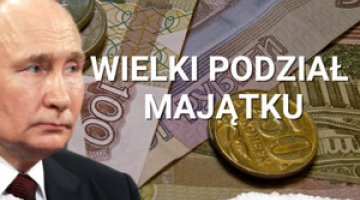Bulgaria introduces additional fees for Russian gas transit
On 13 October 2023, a law came into effect in Bulgaria which introduces an additional transit fee (referred to as the ‘energy levy’) for the import and transit of natural gas from the Russian Federation. The new levy was introduced as part of another amendment to the law “on monitoring the application of restrictive measures linked with Russia’s destabilising actions in Ukraine”, which was initially enacted in 2022 to prevent Russian influence in Bulgaria’s economy and politics. The fee was set at 20 lev (around €10) per MWh of gas, and no differentiation was made as to whether it should only apply to the gas supplied via the Bulgarian section of the TurkStream gas pipeline. According to estimates, around 34–44 mcm of Russian gas probably passes through this section of the pipeline daily. According to the amended law, this extra fee will be charged to gas importers, transmission network operators and distributors. The Bulgarian National Customs Agency (AM) is expected to start collecting it as early as this October. Considering the present gas prices recorded at gas hubs, the ‘energy levy’ may raise the price of this commodity offered to foreign customers by around 20–25% (this calculation is based on the price of natural gas at the Budapest gas hub, which on the day Bulgaria enacted the law stood at €38.55/MWh).
The amendment to the law was passed on 28 September 2023 by votes cast by the ruling GERB-SDS and PP-DB parties, and by the Movement for Rights and Freedoms party (DPS), which represents the Turkish minority and supports the ruling parties. Initially, it did not spark controversy. However, on the day the law came into effect certain doubts were voiced by Hungary’s foreign minister Péter Szijjártó, who was visiting Moscow at that time and offered harsh criticism of this move. Serbian President Aleksandar Vučić followed suit in expressing his criticism of Bulgaria’s actions. On 23 October, Bulgaria’s finance minister Asen Vasilev expressed his readiness to negotiate gas transit prices with Budapest and Belgrade. Despite having already signed the amended law, Bulgaria’s President Rumen Radev assessed its possible incompatibility with EU law and WTO rules, and the concomitant increase in gas prices for foreign customers (which will affect not only Hungary and Serbia, but also North Macedonia, Greece and indirectly Austria) in negative terms. On 26 October, in a procedure known as an a posteriori review, Radev sent this law to the Constitutional Court of Bulgaria; that sparked a harsh response from minister Vasilev, who accused the president of acting in favour of Gazprom and in turn undermining Bulgaria’s national interests.
Commentary
- Since the halt in gas supplies from Gazprom in April 2022, Bulgaria has not imported/used Russian gas. As a consequence, the increase in transit fees will not affect any end-users on its territory. The only exception is the Neftokhim refinery in Burgas, which is owned by LUKoil and buys its gas not from the state-owned Bulgargaz company, but from the Sustainable Energy Supply company which until 2022 (when it was known as Energiko Trading) had acted as an intermediary in gas trade between Gazprom and the Neftokhim refinery. However, at present the Bulgarian section of the TurkStream gas pipeline remains an important element for the transit of Russian gas to Central Europe, especially as the Nord Stream I & II and the Yamal-Europe pipelines are now defunct and the future of gas transit via Ukraine is uncertain (the Ukrainian-Russian gas transit agreement will expire at the end of 2024). Bulgaria’s Prime Minister Nikolay Denkov argues that the introduction of additional fees for the transit of Russian gas is in line with the EU’s strategy of reducing economic cooperation with Russia as much as possible. It also fits in with the EU’s (non-binding) announcements regarding the intention to completely abandon Russian fossil fuels by 2027. The government has emphasised that the new fee will generate between 2.5–3 bn lev (around €1.5 bn) for the Bulgarian state budget annually, and that this sum could be used to modernise the country’s energy sector.
- At this stage, it is not known who will incur the cost of the extra fees. The amended law only contains general provisions regarding the requirement to charge the new fee to gas importers and operators of gas transmission and distribution networks. However, the recently introduced levy will undermine the competitiveness of Russia’s exports, and consequently, reduce the prospects for new contracts for Russian gas supplies. The price increase will also affect the volume of additional supplies provided to Hungary; despite having already signed long-term contracts in 2021, Hungary will buy additional volumes of gas delivered through the TurkStream pipeline running via Bulgaria.
- Sofia’s actions may suggest that, especially since the rotating Denkov–Gabriel government took power, Bulgaria intends to demonstrate greater activity in the region and develop its relations with various countries, including the United States, which has for years attempted to encourage Bulgaria’s consecutive governments to diversify its gas supplies and continue its policy of reducing its economic cooperation with Russia.
- The TurkStream gas pipeline is playing an increasingly important role in Russian gas supplies to Hungary, which is why the additional fees collected on the Bulgarian section of this pipeline will significantly affect the gas supplies provided to that country. The 15-year contract which Hungary signed with Gazprom Export in 2021 envisages the supply of 3.5 bcm of gas (almost 37 m MWh) annually through the TurkStream pipeline via Bulgaria and Serbia (through the Serbian-Hungarian interconnector launched in 2021). It is unclear which party to this long-term contract – the Hungarian state-owned company MVM CEEenergy or Gazprom – should incur the new transit fee which Bulgaria has recently introduced. In the first scenario, which Budapest is very much afraid of, this would involve the MVM paying an additional around 148 bn forints (around €385m) annually (according to estimates prepared by the Hungarian economic news portal Portfolio.hu), which would most likely translate into an increase in gas prices on the Hungarian market.
- Minister Szijjártó has referred to Sofia’s move as a “hostile action” which will jeopardise the energy security of Hungary and Serbia (this phrase was used in a joint statement issued by the two states on 17 October). He maintained that Russia’s president and the CEO of Gazprom had confirmed during their visit to Beijing that the energy giant would uphold its pledge to meet its obligations regarding the transmission of natural gas to Hungary, despite the increase in transit fees in Bulgaria. Szijjártó also emphasised that gas transport is exempt from EU sanctions, and so the Bulgarian prime minister’s alleged intention to undermine the position of the Russian gas supplier in the region is unfounded; the proposed solution is thus contrary to European solidarity and infringes on EU law. The Hungarian government has announced its intention to file a complaint regarding this matter to the EC.
- Despite the Hungarian foreign minister’s assurances that the amended law had been discussed in Moscow and Beijing (where Vladimir Putin and Viktor Orbán also held a meeting), neither the Russian government nor Gazprom representatives have offered any official comments on the new levy recently introduced by Bulgaria. The Russian media has presented this development as an act of political adventurism on Sofia’s part, which was launched at the request of the United States. Moreover it has expressed sympathy for Hungarians and Serbs, who are experiencing problems with receiving not only Russian oil but now also Russian gas, allegedly due to sanctions imposed on Russia. This narrative also highlights the fact that the burden linked with the new fee will be shouldered by gas importers and transmission network operators, rather than Gazprom. It should be noted that in the present difficult financial situation the gas giant is facing, especially as regards its debt and major fiscal burden, the requirement to pay additional levies to third countries could pose a serious problem to it.





